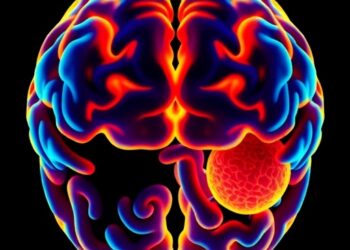A machine-learning tool created by Weill Cornell Medicine and Hospital for Special Surgery (HSS) investigators can help distinguish subtypes of rheumatoid arthritis (RA), which may help scientists find ways to improve care for the complex condition.
A machine-learning tool created by Weill Cornell Medicine and Hospital for Special Surgery (HSS) investigators can help distinguish subtypes of rheumatoid arthritis (RA), which may help scientists find ways to improve care for the complex condition.
The study published Aug. 29 in Nature Communications shows that artificial intelligence and machine learning technologies can effectively and efficiently subtype pathology samples from patients with RA.
“Our tool automates the analysis of pathology slides, which may one day lead to more precise and efficient disease diagnosis and personalized treatment for RA,” said Dr. Fei Wang, a professor of population health sciences and the founding director of the Institute of AI for Digital Health (AIDH) in the Department of Population Health Sciences at Weill Cornell Medicine. “It shows that machine learning can potentially transform pathological assessment of many diseases.”
There are several existing research developing machine learning tools for automatic analysis of pathology slides in oncology. Dr. Wang and his colleagues have been working to expand the use of this technology in other clinical specialties.
Automating a Slow Process
For the latest study, Dr. Wang teamed up with Dr. Richard Bell, an instructor in the Arthritis and Tissue Degeneration Program and Research Institute and a computational pathology analyst in the Molecular Histopathology Core Laboratory at the HSS, and Dr. Lionel Ivashkiv, chief scientific officer and chair of the Arthritis and Tissue Degeneration Program at HSS and professor of medicine at Weill Cornell Medicine, to automate the process of subtyping RA tissue samples. Distinguishing between the three subtypes of RA may help clinicians choose which therapy is most likely to be effective for a particular patient.
Pathologists currently manually classify arthritis subtypes using a rubric to identify cell and tissue characteristics in biopsy samples from human patients—a slow process that adds to the cost of research and may lead to inconsistencies between pathologists.
“It’s the analytical bottleneck of pathology research,” Dr. Bell said. “It is very time-consuming and tedious.”
The team first trained its algorithm on RA samples from one set of mice, optimizing its ability to distinguish tissue and cell types in the sample and sort them by subtype. They validated the tool on a second set of samples. The tool also yielded new insights into treatment effects in the mice, such as reduced cartilage degradation within six weeks of administering commonly used RA treatments.
Then, they deployed the tool on patient biopsy samples from the Accelerating Medicines Partnership Rheumatoid Arthritis research consortium and showed it could effectively and efficiently type human clinical samples. The researchers are now validating the tool with additional patient samples and determining the best way to incorporate this new tool into pathologists’ workflows.
A Step Toward Personalized Medicine
“It’s the first step towards more personalized RA care,” Dr. Bell said. “If you can build an algorithm that identifies a patient’s subtype, you’ll be able to get patients the treatments they need more quickly.”
The technology may provide new insights into the disease by detecting unexpected tissue changes that humans might miss. By saving pathologists time on subtyping, the tool may also decrease the cost and increase the efficiency of clinical trials testing treatments for patients with different subtypes of RA.
“By integrating pathology slides with clinical information, this tool demonstrates AI’s growing impact in advancing personalized medicine,” said Dr. Rainu Kaushal, senior associate dean for clinical research and chair of the Department of Population Health Sciences at Weill Cornell Medicine. “This research is particularly exciting as it opens new pathways for detection and treatment, making significant strides in how we understand and care for people with rheumatoid arthritis.”
The team is working to develop similar tools for evaluating osteoarthritis, disc degeneration and tendinopathy. In addition, Dr. Wang’s team is also looking at defining disease subtypes from broader biomedical information. For example, they’ve recently demonstrated that machine learning can distinguish three subtypes of Parkinson’s disease. “We hope our research will trigger more computational research on developing machine learning tools for more diseases,” Dr. Wang said.
“This work represents an important advance in analyzing RA tissues that can be applied for the benefit of patients,” said Dr. Ivashkiv.
Journal
Nature Communications
Article Title
Automated multi-scale computationalpathotyping (AMSCP) of inflamedsynovial tissue
Article Publication Date
29-Aug-2024




